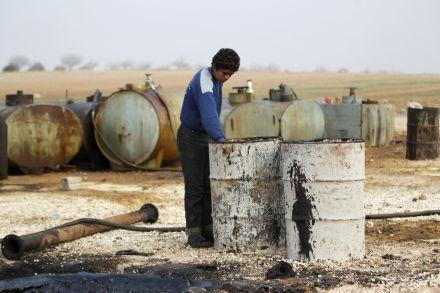
OIL PRICES: IDIOTIC FRENZY

Russia's largest oil producer on Friday played down prospects of a co-ordinated output cut with Opec and described the sharp rally in oil prices on speculation of such a move as "idiotic".
Mikhail Leontyev, spokesman for state-controlled Rosneft, told the Financial Times that "nothing new has happened" to suggest a co-ordinated production cut was more likely.
"Consultations with Opec happen all the time. All positions are well known; they have not changed in any way," he said.
Oil prices surged as much as 8 per cent on Thursday after Alexander Novak, energy minister, told journalists that Russia was ready to take part in a meeting with Opec members in February.
Igor Sechin, Rosneft's chief executive and the most powerful figure in the Russian energy industry, has long argued that the structure of the country's oil sector and its harsh winters would make it challenging to implement a government-mandated output cut.
Mr Leontyev did not rule out the possibility of a cut, but said: "Everything is possible in theory. It was possible a year ago, a month ago. Nothing new has happened. This frenzy is idiotic. It stems from the fact that people can't read."
On Friday, Mr Novak said Venezuela had approached Russia about a meeting. He said Russia had agreed to attend to discuss the issue of output cuts but said Russia had not even begun internal discussions on how a possible cut might work.
Opec delegates have said no meeting has been scheduled. But cash-strapped members of the cartel such as Venezuela and Nigeria are likely to keep pushing for emergency talks.
The 70 per cent plunge in oil prices since the middle of 2014 has shredded the budgets of many producing countries. In Russia, the rouble has fallen to a record low, while concerns are growing about a possible debt default by Venezuela.
"At present we would judge these type of statements to be nothing more than verbal attempts to prevent the market from aggressively testing the downside during this crucial phase when returning Iranian oil and lower seasonal crude runs at a time of already high stock levels," said analysts at JBC Energy, a Vienna-based consultancy.
Any deal would need the backing of Saudi Arabia, the cartel's de facto leader and world's biggest oil exporter.
Saudi Arabia has repeatedly said it is willing to consider production cuts but only if other Opec members participate and they are joined by the largest producers outside the group, such as Russia.
"While it is certainly possible that the parties in question get together to talk, hammering out the details of a production cut agreement (such as how to monitor compliance, etc) would be anything but easy, and we have strong doubts that such a deal could be finalised quickly enough to have any effect on stockpiling activity over the crucial early parts of the year," said JBC.
Late in London on Friday, Brent, the global oil benchmark, was up 19 cents to $34.08 a barrel, while West Texas Intermediate, the US marker, was down 18 cents to $33.06.
Prices have rallied more than 20 per cent since they hit a 12-year low of $27 a barrel last week as hedge funds have started to cover some of their record bets against oil.
If Russia and Opec can set aside their differences and agree to reduce production by 5 per cent, it would cut global oil output by more than 2m barrels a day. This would help rebalance a market where supply outstrips demand by more than 1m barrels a day and inventories have ballooned to near-record levels.
-----
More:
THE GREATEST INVESTING OPPORTUNITIES





